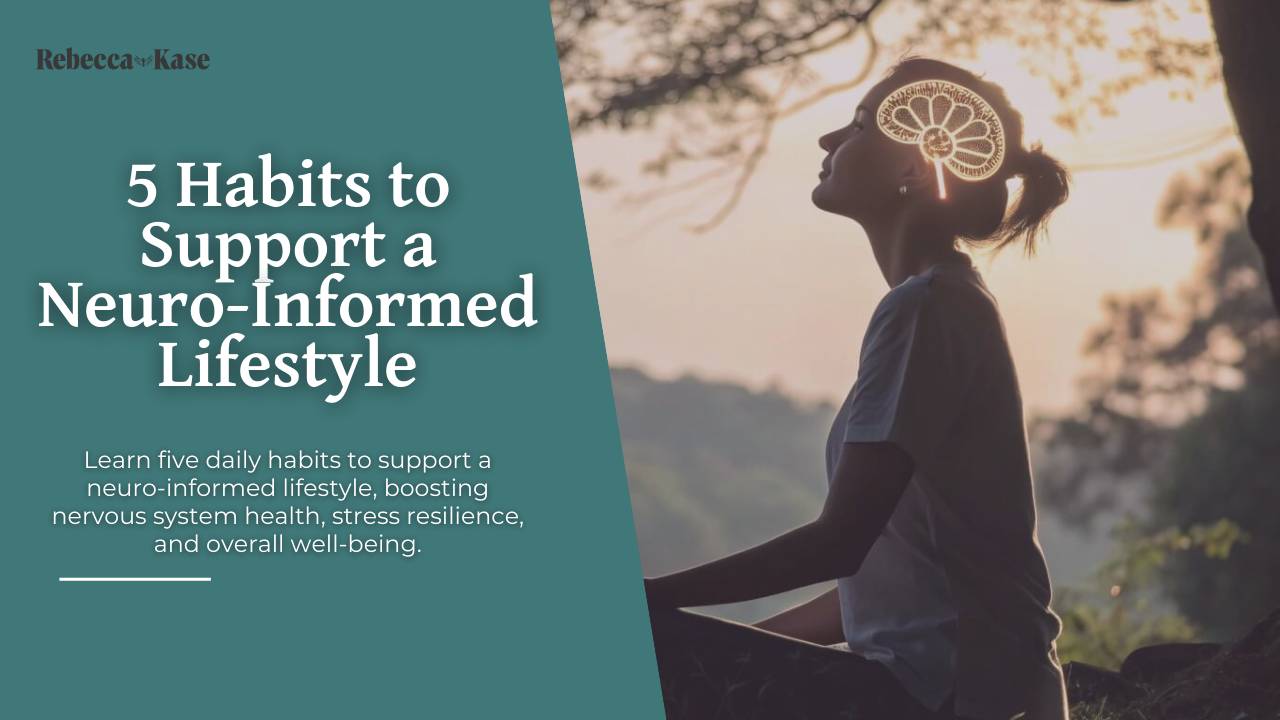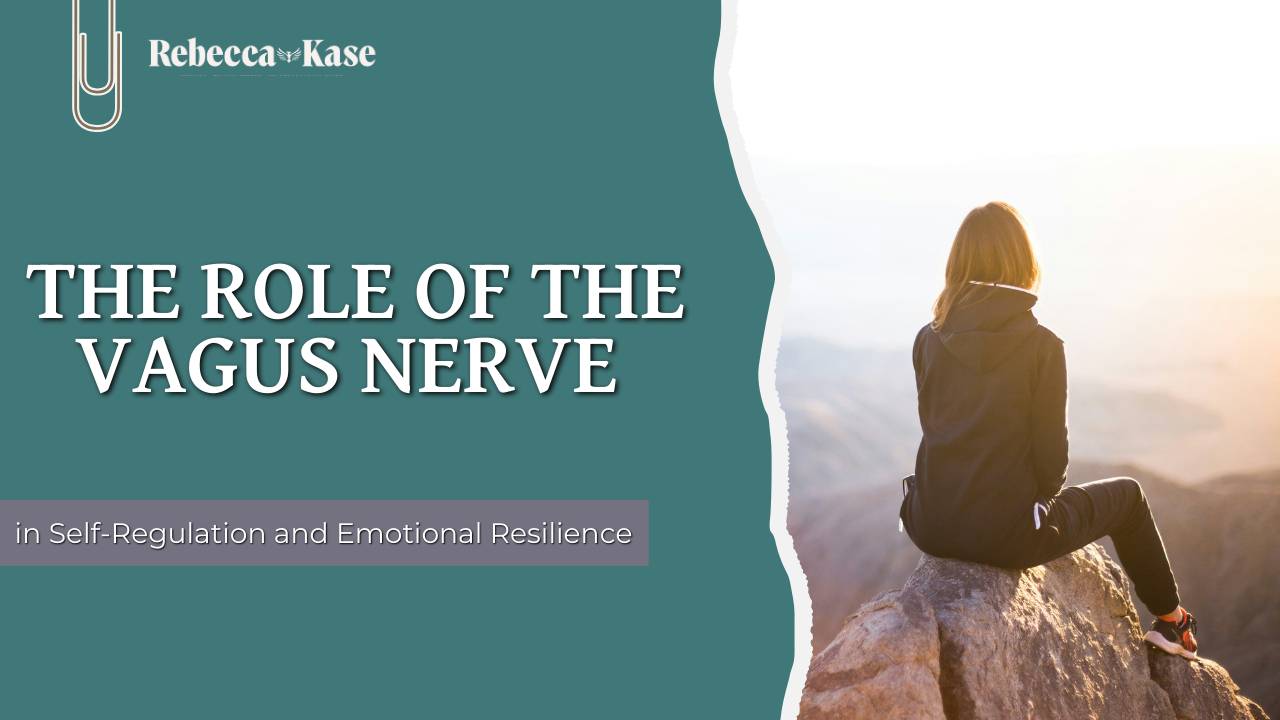
5 Daily Habits to Support a Neuro-Informed Lifestyle
Ever notice how some days you feel balanced and centered, while others you're completely frazzled? The difference often comes down to how well you're supporting your nervous system. As someone who's explored this connection for years, I've found that small daily practices make a world of difference in how we experience life.
Your nervous system isn't just some abstract concept—it's the command center controlling everything from stress responses to digestion to social connection. In our hyper-stimulated world, it's usually working overtime. Let's explore five practical habits to help you live more neuro-informed.
1. Prioritize Quality Sleep
Sleep isn't just rest—it's active recovery time for your nervous system. During sleep, your brain clears metabolic waste and consolidates memories, directly impacting your stress resilience the next day.
How it impacts your nervous system: Sleep deprivation triggers your sympathetic "fight-or-flight" response, increasing cortisol and inflammation while lowering your threshold for stress reactivity.
According to the National Institute of Neurological Disorders and Stroke, most adults need 7-9 hours of quality sleep. Keep a consistent schedule, create a device-free wind-down ritual, and make your bedroom cool, dark, and quiet.

2. Move Your Body Daily
Movement releases tension, stimulates the vagus nerve, and produces mood-boosting neurochemicals. Harvard Health Publishing reports that regular exercise actually changes brain structure, improving memory while reducing anxiety.
How it impacts your nervous system: Physical activity builds stress resilience by repeatedly cycling your body through natural stress response and recovery, training your system to be more flexible when facing real-life stressors.
Try morning stretching, brief "movement snacks" throughout the day, rhythmic activities like walking, strength training, or playful movement. The type matters less than consistency.
3. Practice Intentional Breathing
Your breath is a unique bridge between your conscious mind and autonomic nervous system. According to Harvard Medical School, specific breathing techniques can calm your stress response in real-time.
How it impacts your nervous system: Slow, deep breathing stimulates the vagus nerve, lowering heart rate and stress hormones while increasing feelings of calm.
Try diaphragmatic breathing (belly breathing), box breathing (equal counts in, hold, out, hold), or making your exhale longer than your inhale. Just 3-5 minutes twice daily can significantly improve regulation.
4. Nourish Your Brain with Food and Water
Your brain uses about 20% of your body's energy despite making up only 2% of your weight. What you eat directly impacts how your nervous system functions.
How it impacts your nervous system: Blood sugar instability triggers stress hormone release, while dehydration affects neurotransmitter function. Anti-inflammatory foods support healthy brain function and stress recovery.
The Alzheimer's Association recommends a Mediterranean-DASH approach emphasizing vegetables, berries, whole grains, fish, olive oil, and nuts. Stay hydrated and eat regular meals to maintain stable blood sugar.

5. Practice Daily Nervous System Check-ins
Developing body awareness through regular check-ins allows you to notice dysregulation early and respond with appropriate self-regulation techniques.
How it impacts your nervous system: Regular check-ins strengthen the connection between your prefrontal cortex and limbic system, improving emotional regulation.
Try setting 3 daily alarms as check-in reminders, using the "5-4-3-2-1" sensory grounding technique, or practicing brief body scan meditations. Changi General Hospital notes that these sensory grounding practices can quickly bring your nervous system back to a regulated state.
What Is a Neuro-Informed Lifestyle?
A neuro-informed lifestyle means making daily choices with an understanding of how they impact your nervous system function. This approach draws from polyvagal theory, which explains how our autonomic nervous system shapes our responses to the world.
As King's Health Partners explains, nervous system regulation affects everything from digestion to immune function to our capacity for social connection.
You can read more about it here: Neuro-Informed Living
Can These Habits Really Make a Difference?
Absolutely. The Centers for Disease Control and Prevention notes that chronic stress can change brain structure and function, while these supportive practices create positive neuroplasticity.
Some benefits, like those from breathing exercises, can be felt immediately. Others, like improved sleep quality or cognitive benefits of regular exercise, may take several weeks of consistent practice.
Remember that a neuro-informed lifestyle isn't about perfection—it's about awareness and intentionality. Start with just one habit that resonates with you, be consistent, and notice how it affects your day-to-day experience.
Want more structure? Check out my upcoming course on building a neuro-informed daily routine. Your nervous system is the foundation of your health and wellbeing—the small habits you cultivate today create profound shifts in how you experience life.




